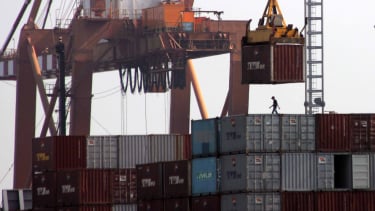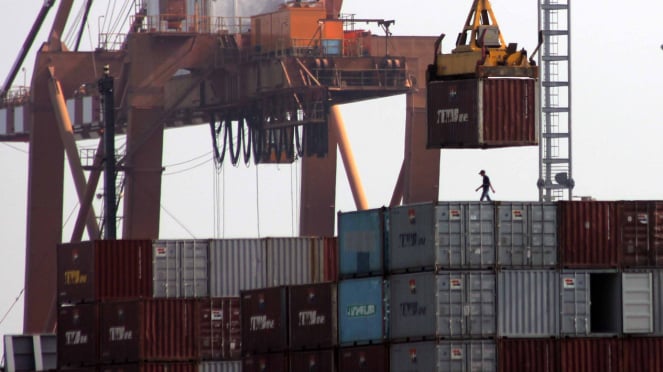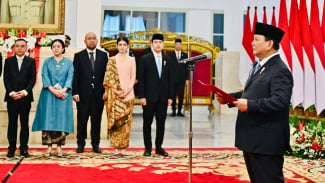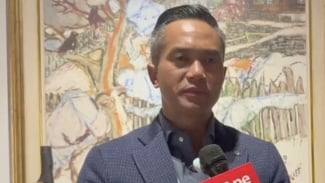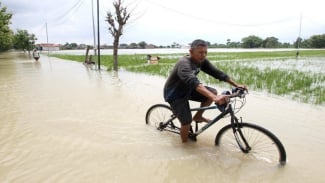Export Could Save Indonesia's Economic Growth during Uncertainties
- VIVA/M Ali Wafa
VIVA – 2022 was considered as a transition year for countries worldwide to end the Covid-19 pandemic. People must stay home, but after the mobility restrictions were lifted, the level of consumption increase that in turn affected the inflation rate.
When inflation was high at the start of 2022, monetary authorities said there was nothing to worry about, as they said it was natural during the transition to the post-pandemic era. However, Russia's invasion of Ukraine in March last year has made food and energy prices soar, increasing the inflation rate to be higher.
The world's central banks then raised benchmark interest rates to curb inflation. However, inflation has not yet declined and the risk of a global recession loomed toward the end of 2022. However, as of early 2023, it turned out that the situation is not as severe as feared. For instance, inflation in the United States fell to 6.5 percent.
Meanwhile, the global banking crisis recently emerged, such as the collapse of the Silicon Valley Bank (SVB) in the US and the crises that Credit Suisse and Deutsche Bank in Europe faced.
Global economic uncertainties continued on account of these crises, especially for Indonesia.
Ilustrasi Ekspor Impor/Jasa Logistik.
- VIVA.co.id/M Ali Wafa
Economist and Rector of Atma Jaya Catholic University Agustinus Prasetyantoko explained that the risk of recession, rising interest rates, and banking crisis certainly affect Indonesia's financial conditions. The capital market was volatile, the rupiah weakened, and the pressure on Bank Indonesia to raise its benchmark interest rate increased.
However, in terms of trade, when the Russia-Ukraine war erupted, Indonesia's exports increased, given that most of its export products are commodities. The increase in commodity prices made state revenues rise and the budget deficit could be reduced.
"We are actually offset by the situation. Pressure from the financial channel is offset by the trade channel where exports are a buffer for the arising turbulence, making our economy remain resilient," he explained.
According to Prasetyantoko, the export sector contributed to Indonesia's economic growth remaining positive last year. Based on data from Indonesia Statistics (BPS), Indonesia's economy grew by 5.31 percent in 2022. He expected that the Indonesian economy can also grow above five percent in 2023.
Although Indonesia's export sector is elevated due to the rising global food and commodity prices, he said making it truly an economic buffer is a necessity for the future.
"We still benefit in 2022 because of the commodity prices aspect, where most of our exports are commodity-based. In the future, we need to make our exports more sophisticated, which means the manufacturing sector," he remarked.
Shifting export products from commodity-based to manufactured products is also homework that must be completed. He also appreciated the government's downstream industry policy. The policy of industrial down streaming is expected to strengthen the competitiveness of the national economy in facing the challenges of uncertainty in the current global economic conditions.
Indonesia is also determined to become a global key player in commodity-based downstream industries by reducing raw material exports and increasing the down streaming of domestic natural resource-based industries.
One commodity with large reserves in Indonesia is nickel, where U.S. Geological Survey data shows that Indonesia's nickel reserves rank first, reaching 21 million tons or equivalent to 22 percent of global reserves. Indonesia's nickel production also ranks first at 1 million tons, exceeding the Philippines (370 thousand tons) and Russia (250 thousand tons).
Nickel down streaming has also proven to contribute positively and throughout 2022 has contributed 2.17 percent to total non-oil and gas exports.
"If Indonesia wants to take off from a middle-income country to a developed country and the milestone is 2045, 100 years of Indonesia, I think it must be designed properly, one is that our export products are increasingly diversified, increasingly diverse. That means we have to build a strong manufacturing industry base and again it can't just happen," Prasetyantoko stated.


